Today we honor the life and legacy of civil rights activist Cesar Chavez on what would have been his 90th birthday. He is remembered not just as a champion for labor rights and founder of the United Farm Workers Union, but as a social justice hero for fair wages and humane working conditions. This day serves to remember his great work and to continue to spread his mission: that when workers are treated fairly, everybody benefits. We’ve included some recommended reading in honor of his mission and welcome your suggestions in the comments.
In the Fields of the North / En los campo s del norte
s del norte
by David Bacon
In this landmark work of photo-journalism, activist and photographer David Bacon documents the experiences of some of the hardest-working and most disenfranchised laborers in the country: the farmworkers who are responsible for making California “America’s breadbasket.” Combining haunting photographs with the voices of migrant farmworkers, Bacon offers three-dimensional portraits of laborers living under tarps, in trailer camps, and between countries, following jobs that last only for the harvesting season. He uncovers the inherent abuse in the labor contractor work system, and drives home the almost feudal nature of laboring in America’s fields.
“Extraordinary, carefully chosen portraits of farmworkers, their families and communities . . . A copy should be distributed to every member of the Legislature.” —Mike Davis, author of City of Quartz and Magical Urbanism
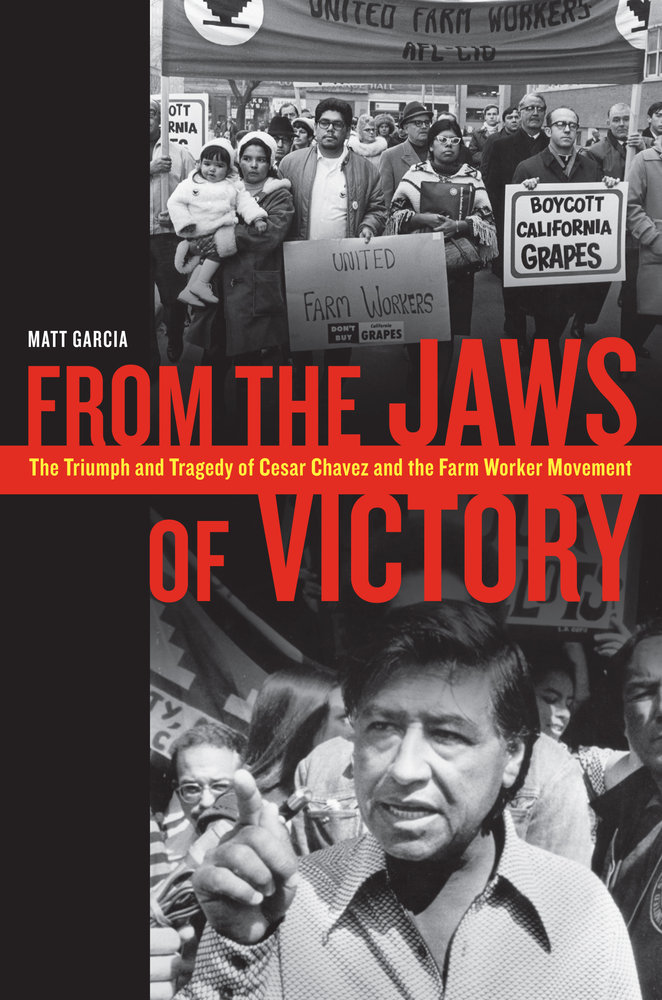 From the Jaws of Victory: The Triumph and Tragedy of Cesar Chavez and the Farm Worker Movement
From the Jaws of Victory: The Triumph and Tragedy of Cesar Chavez and the Farm Worker Movement
by Matthew Garcia
This is the most comprehensive history ever written on the meteoric rise and precipitous decline of the United Farm Workers, the most successful farm labor union in United States history. Based on little-known sources and one-of-a-kind oral histories with many veterans of the farm worker movement, this book revises much of what we know about the UFW. Matt Garcia’s gripping account of the expansion of the union’s grape boycott reveals how the boycott, which UFW leader Cesar Chavez initially resisted, became the defining feature of the movement and drove the growers to sign labor contracts in 1970.
“The most comprehensive history on the United Farm Workers to date, with many new oral histories that will change how we think about the UFW.”—Los Angeles Magazine
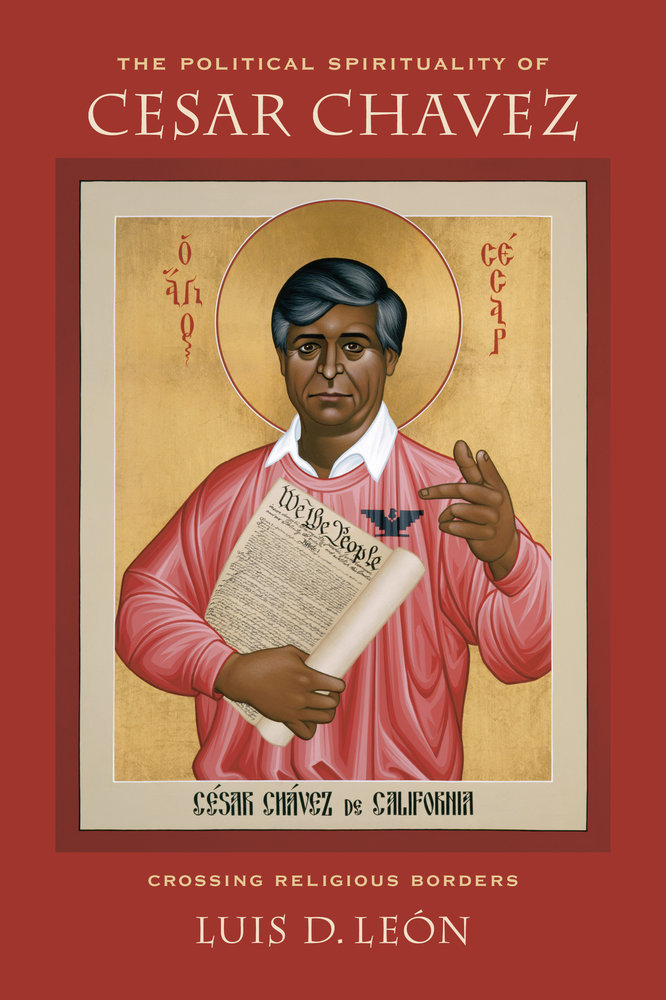 The Political Spirituality of Cesar Chavez: Crossing Religious Borders
The Political Spirituality of Cesar Chavez: Crossing Religious Borders
by Luis D. Leon
The Political Spirituality of Cesar Chavez maps and challenges many of the mythologies that surround the late iconic labor leader. Focusing on Chavez’s own writings, León argues that La Causa can be fruitfully understood as a quasi-religious movement based on Chavez’s charismatic leadership, which he modeled after Martin Luther King Jr. and Gandhi. Chavez recognized that spiritual prophecy, or political spirituality, was the key to disrupting centuries-old dehumanizing narratives that conflated religion with race. By refocusing Chavez’s life and beliefs into three broad movements—mythology, prophecy, and religion—León brings us a moral and spiritual agent to match the political leader.
“Chavez treated religion as he treated so many topics of importance in his life: as something to be willed into contribution to a higher good.”—Kathryn Lofton, Yale University
The New La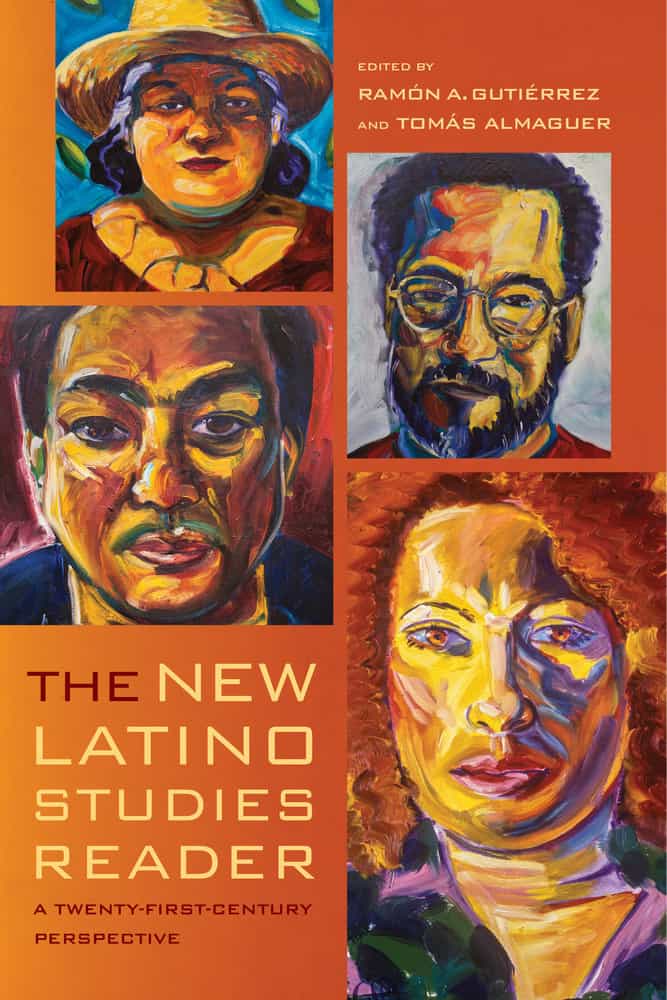 tino Studies Reader: A Twenty-First-Century Perspective
tino Studies Reader: A Twenty-First-Century Perspective
Edited by Ramon A. Gutierrez and Tomas Almaguer
With The New Latino Studies Reader, students explore the sociohistorical formation of Latinos as a distinct panethnic group in the United States, delving into issues of class formation; social stratification; racial, gender, and sexual identities; and politics and cultural production. And while other readers now in print may discuss Mexican Americans, Puerto Ricans, Cubans and Central Americans as distinct groups with unique experiences, this text explores both the commonalities and the differences that structure the experiences of Latino Americans. Timely, thorough, and thought-provoking, The New Latino Studies Reader provides a genuine view of the Latino experience as a whole.
“A sorely needed introductory text that integrates analyses of race, class, and color with gender, sexuality, and politics.”—Patricia Zavella, UC Santa Cruz
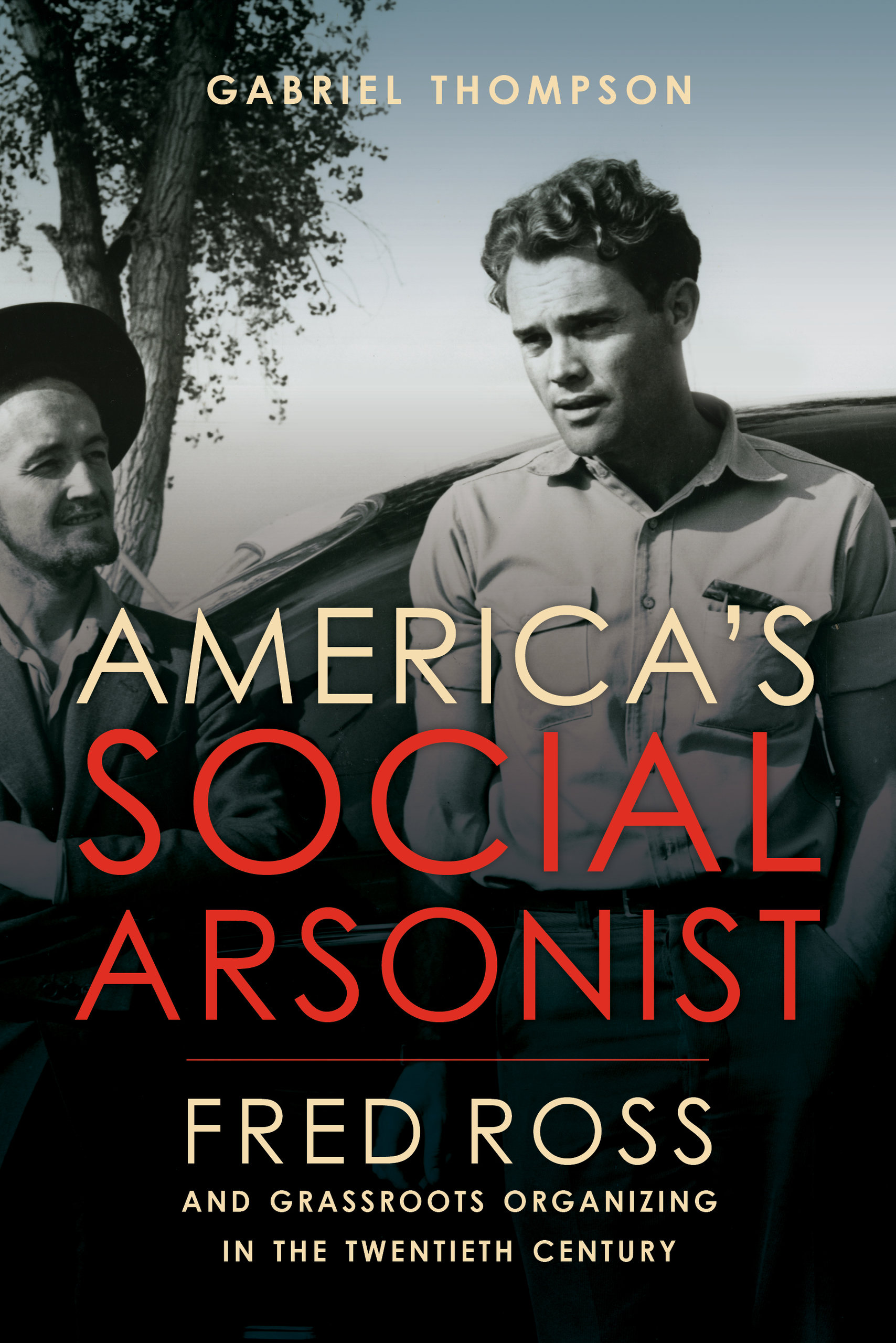 America’s Social Arsonist: Fred Ross and Grassroots Organizing in the Twentieth Century
America’s Social Arsonist: Fred Ross and Grassroots Organizing in the Twentieth Century
by Gabriel Thompson
Fred Ross was one of the most influential community organizers in American history. His activism began alongside Dust Bowl migrants, where he managed the same labor camp that inspired John Steinbeck’s The Grapes of Wrath. During World War II, Ross worked for the release of interned Japanese Americans, and after the war, he dedicated his life to building the political power of Latinos across California. Labor organizing in this country was forever changed when Ross knocked on the door of a young Cesar Chavez and encouraged him to become an organizer. Gabriel Thompson provides a full picture of this complicated and driven man, recovering a forgotten chapter of American history and providing vital lessons for organizers today.
“Thompson captures Ross’ life story and core ideas. It is among the books to be read by anyone interested in labor or community organizing and the future of democracy.”—Counter Punch
Sal Si Puedes (Esca pe If You Can): Cesar Chavez and the New American Revolution
pe If You Can): Cesar Chavez and the New American Revolution
by Peter Matthiessen, foreword by Marc Grossman
In the summer of 1968 Peter Matthiessen met Cesar Chavez for the first time. They were the same age: forty-one. Matthiessen lived in New York City, while Chavez lived in the Central Valley farm town of Delano, where the grape strike was unfolding. This book is Matthiessen’s panoramic yet finely detailed account of the three years he spent working and traveling with Chavez, including to Sal Si Puedes, the San Jose barrio where Chavez began his organizing.
“Cesar Chavez is gracefully revealed by Peter Matthiessen as a curiously private public figure who is in love with people.”—Chicago Tribune
Delano: The St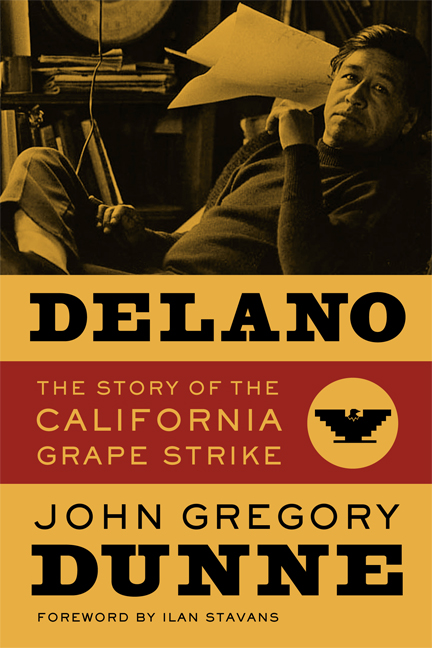 ory of the California Grape Strike
ory of the California Grape Strike
by John Gregory Dunne, foreword by Ilan Stavans
In September 1965, Filipino and Mexican American farm workers went on strike against grape growers in and around Delano, California. More than a labor dispute, the strike became a movement for social justice that helped redefine Latino and American politics. The strike also catapulted its leader, Cesar Chavez, into prominence as one of the most celebrated American political figures of the twentieth century. More than forty years after its original publication, Delano: The Story of the California Grape Strike, based on compelling first-hand reportage and interviews, retains both its freshness and its urgency in illuminating a moment of unusually significant social ferment.
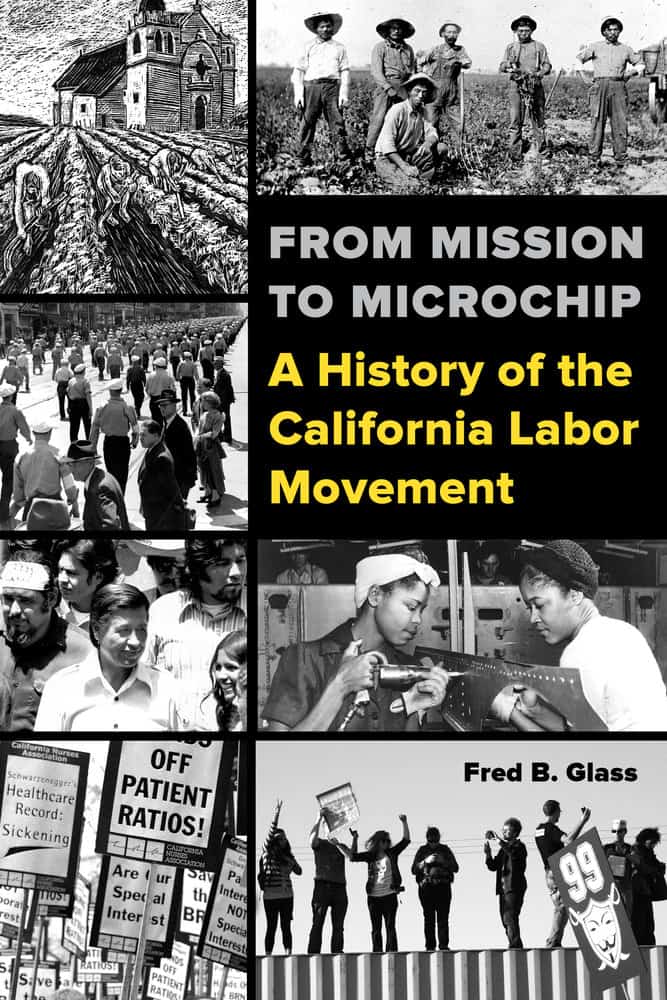 From Mission to Microchip: A History of the California Labor Movement
From Mission to Microchip: A History of the California Labor Movement
by Fred Glass
California has held an exceptional place in the imagination of Americans and immigrants since the Gold Rush, which saw the first of many waves of working people moving to the state to find work. From Mission to Microchip unearths the hidden stories of these people throughout California’s history. The difficult task of the state’s labor movement has been to overcome perceived barriers such as race, national origin, and language to unite newcomers and natives in their shared interest. As chronicled in this comprehensive history, workers have creatively used collective bargaining, politics, strikes, and varied organizing strategies to find common ground among California’s diverse communities and achieve a measure of economic fairness and social justice.
“[Glass] has managed to catalogue the most meaningful moments for working people in the biggest state in the union.”—East Bay Express

